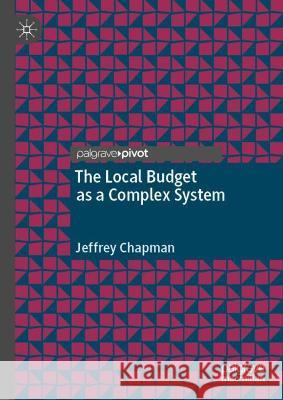The Local Budget as a Complex System » książka
topmenu
The Local Budget as a Complex System
ISBN-13: 9783030949020 / Angielski / Twarda / 2022 / 111 str.
The Local Budget as a Complex System
ISBN-13: 9783030949020 / Angielski / Twarda / 2022 / 111 str.
cena 205,02
(netto: 195,26 VAT: 5%)
Najniższa cena z 30 dni: 192,74
(netto: 195,26 VAT: 5%)
Najniższa cena z 30 dni: 192,74
Termin realizacji zamówienia:
ok. 16-18 dni roboczych.
ok. 16-18 dni roboczych.
Darmowa dostawa!
Kategorie:
Kategorie BISAC:
Wydawca:
Springer Nature Switzerland AG
Seria wydawnicza:
Język:
Angielski
ISBN-13:
9783030949020
Rok wydania:
2022
Ilość stron:
111
Wymiary:
21.0 x 14.8
Oprawa:
Twarda
Dodatkowe informacje:
Wydanie ilustrowane











